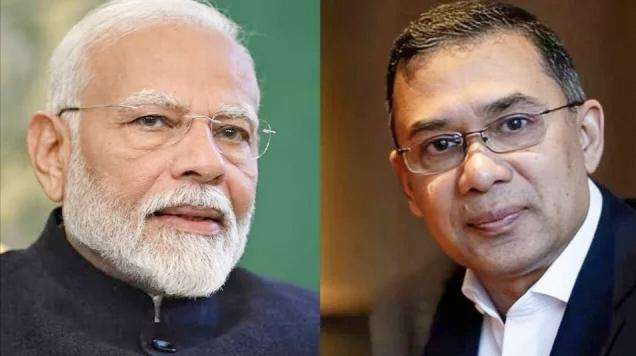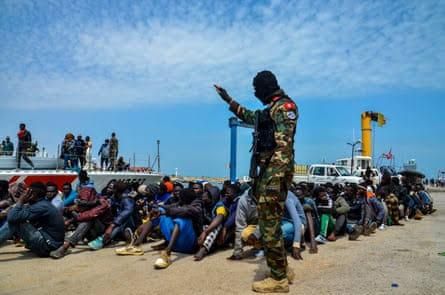Despite economic losses over the last two months and a half, India, the big neighbor of Bangladesh, seems putting political and security issues over economic, social and cultural issues, said diplomats, policy-makers and business leaders.
Indian Prime Minister Narendra Modi at the swearing-in ceremony of his third term at the Rashtrapati Bhavan in June this year, reaffirmed India’s commitment to its ‘Neighbourhood First’ policy and ‘SAGAR’ vision.
The swearing-in ceremony was also attended by Bhutan Prime Minister Tshering Tobgay, Nepal Prime Minister Pushpa Kamal Dahal, Mauritius Prime Minister Pravind Kumar Jugnauth, Seychelles Vice-President Ahmed Afif, and Maldives President Mohamed Muizzu, whose inclusion as an invitee surprised diplomatic circles in view of the currently strained ties between New Delhi and Male.
The presence of leaders from the neighbourhood and the Indian Ocean region, including the then Bangladesh Prime Minister Sheikh Hasina and Sri Lankan President Ranil Wickremesinghe, at the inauguration of Narendra Modi’s third term as premier emphasises the importance attached by New Delhi to these countries.
The swearing-in ceremony was also attended by Bhutan Prime Minister Tshering Tobgay, Nepal Prime Minister Pushpa Kamal Dahal, Mauritius Prime Minister Pravind Kumar Jugnauth, Seychelles Vice-President Ahmed Afif, and Maldives President Mohamed Muizzu, whose inclusion as an invitee surprised diplomatic circles in view of the currently strained ties between New Delhi and Male.
After the ceremony, Modi met the visiting leaders at Rashtrapati Bhavan and reaffirmed India’s commitment to its ‘Neighbourhood First’ policy and ‘SAGAR’ vision, or Security and Growth for All in the Region. Modi said in his third term, India will continue to work for “peace, progress and prosperity of the region in close partnership with the countries, even as it pursues its goal of Viksit Bharat by 2047”.
Now Chief Adviser of Bangladesh Professor Dr Muhammad Yunus on the margins of the United Nations General Assembly next week has expressed his desire to meet Indian Prime Minister Narendra Modi to let the dust settles in multilateral relations with the neighbour based on equity, justice and impartiality.
The last Prime Minister of Bangladesh Shiekh Hasina visited New Delhi twice in the month of June, and diplomats now question the reaffirmed India’s commitment to its ‘Neighbourhood First’ policy..
Meanwhile, Prime Minister Narendra Modi is not expected to meet Bangladesh interim government chief Muhammad Yunus on the margins of the United Nations General Assembly next week, people familiar with the matter said on Wednesday.
Earlier this month, the Bangladesh side made a formal request for a meeting on the sidelines of the General Assembly, which both leaders are set to attend. Dhaka was keen on a meeting in the hope it would help clear the air over irritants that have emerged in bilateral ties since the fall of the Sheikh Hasina government, the people said on condition of anonymity.
The people said such a meeting is not part of the Indian side's agenda. Besides, Modi will have a packed schedule for his three-day visit to the US, as he is set to attend the Quad Leaders' Summit in Wilmington, Delaware, on September 21 and address the Summit of the Future at the UN General Assembly on September 23.
"The PM is expected to have some bilateral meetings on the sidelines of the General Assembly in New York but a meeting with the head of Bangladesh's interim government isn't on the schedule," one of the people cited above said.
Besides scheduling issues, comments by Yunus on India-Bangladesh relations in a recent interview and near-daily remarks by members of the interim government in Dhaka perceived as critical of India have not gone down well in New Delhi.
In the interview, Yunus criticised former premier Sheikh Hasina for commenting on developments in Bangladesh while in exile in India. He suggested Bangladesh could seek her extradition and said India should move beyond the "narrative" that every political party other than Hasina's Awami League is "Islamist".
Other members of the interim government, including de facto foreign minister Touhid Hossain, have repeatedly raked up the possibility of seeking the extradition of Hasina, who fled to India after stepping down on August 5. Hossain also acknowledged any such move would create an "embarrassing situation for the Indian government".
India's leadership has said Hasina was granted approval to come to the country at short notice. Hasina has been largely incommunicado while in India, where she is at an undisclosed safe location. The external affairs ministry has refused to be drawn out on any possible Bangladeshi request for her extradition, describing it as a hypothetical matter.
The people cited above said a meeting between Modi and former US president Donald Trump too was not part of the Indian side's agenda though an encounter between the two leaders in New York could not be ruled out.
Trump said at a campaign event in Flint, Michigan, on Tuesday that he will meet Modi next week but gave no details on where the meeting would be held. Trump also said India was a "very big abuser" of the US-India trade relationship. Some other world leaders who visited the US in recent months for meetings with President Joe Biden and other multilateral events have met Trump as well.
Prime Minister Narendra Modi is not expected to meet Bangladesh interim government chief Muhammad Yunus on the margins of the United Nations General Assembly next week, people familiar with the matter said on Wednesday.
Though India has incurred heavy economic losses during the last two months and half after political changes in Bangladesh, New Delhi still seems in a shocking mood on the modalities to normalize the multilateral relations with Dhaka and return to real scenario, said diplomats, stakeholders and business leaders.
India’s export to Bangladesh dropped while Bangladeshi tourists to India dropped during the last three months against the backdrop of political crisis in Bangladesh, sources said.
Bangladeshi tourist arrivals in India in 2023 posted over 60 per cent growth the previous year 2022 as some 20,56,880 Bangladeshi tourists visited the neighboring country in 2023 as compared to some 12,55,960 Bangladeshi tourists in 2022
Bangladeshi tourists (22.27 per cent) also retained the top position in neighbouring India during the January-December period of 2023, followed by the United States (17.79 per cent), the UK (9.68 per cent), Canada (9.68 per cent) and Australia (4.05 per cent, according to the data of the Tourism Ministry of the government of India.
Foreign tourists arrivals (FTA) during the period of January- December, 2023 were 92,36,108 as compared to 64,37,467 in January-December 2022 and 1,09,30,355 in January-December, 2019 registering a growth of 43.5% and -15.5% with respect to 2022 and 2019 respectively.
Besides tourists, several thousand Bangladeshi students are pursuing higher education, in elementary schools and several lakh to get better treatment in different part of India
Recent unrest in Bangladesh has caused a significant 90 per cent drop in outbound travel, an Economic Times report quoted officials from the Travel Operators Association of Bangladesh as saying. The situation worsened about two weeks ago when Prime Minister Sheikh Hasina resigned and left the country in response to escalating student protests. This led to temporary flight disruptions and a suspension of all visas except those for medical reasons.
Although flights have now resumed, an official from a budget airline operating flights to Dhaka noted that the passenger load for these flights has decreased by over 50 per cent, the report said.
Md Taslim Amin Shovon, the director of the Tour Operators Association of Bangladesh, said that travel to India constitutes to be a significant segment of Bangladesh’s outbound travel market. “India is a key destination for Bangladeshi travellers, who account for 40-45 per cent of outbound trips. The majority visit for medical treatment (over 80 per cent), with shopping (15 per cent) and leisure (5 per cent) as secondary reasons. Kolkata is a favoured shopping hub, particularly before festivals, while Sikkim, Northeast India, and Kashmir also attract visitors?” Shovan said, as quoted by the report.
Although tourist arrivals in India surged by 43.5 per cent in 2023, the figures are still 15.5 per cent below pre-pandemic levels. The country saw 9.23 million visitors last year, bringing in Rs 24,707 crore in foreign exchange. Among these tourists, those from Bangladesh constituted more than 22.5 per cent, representing the largest percentage from any single nationality, the report said.
Debjit Dutta, chairman of the Indian Association of Tour Operators (IATO) West Bengal Chapter, noted that travel between Bangladesh and India has almost come to a halt since the onset of the recent crisis.
The report quoted him as saying, “The government has stopped issuing visas, and only those with genuine medical reasons are granted visas. Travel operators, hotels, and guest houses near hospitals in West Bengal have experienced a near 90 per cent drop in business.”
In 2023, medical tourism from Bangladesh to India experienced a significant increase of 48 per cent, with the number of patients rising to 449,570 from 304,067 the previous year.
The report quoted Samit Bez, chief executive and founder of Kolkata-based medical tourism company Indiatreatments.com, as saying that his company previously managed around 150 Bangladeshi patients each month. However, he has observed a drastic decline, with the current number of patients falling to just five or 6 per month, as many appointments have been cancelled.
Trade data showed that cotton exports, which is India’s primary export commodity to Bangladesh, slipped nearly 10% to 1 billion in August this year compared to 1.11 billion August 2023.
India's exports to Bangladesh declined by 28%, from $943 million in August last year to $681 million last month, says The Indian Express.
Meanwhile, rating agency Crisil said that the recent developments in Bangladesh haven't had a significant impact on India's trade but going forward a prolonged disruption can affect the revenue profiles and working capital cycles of some export-oriented units for which Bangladesh is either a demand centre or a production hub.
Trade data showed that cotton exports, which is India's primary export commodity to Bangladesh, slipped nearly 10% to 1 billion in August this year compared to 1.11 billion August 2023.
This comes amid slowing export textile and apparel orders coming to Bangladesh following the protests.
The decline in orders from Bangladesh has had a spillover effect on the Indian textile industry, which supplies raw materials and other input items to Bangladesh. While fresh inquiries for garments are coming to India, Indian cotton exports to Bangladesh have begun to decline.
The effect will vary based on industry or sector-specific nuances and exposure, it said. "We do not foresee any near-term impact on the credit quality of India Inc either," the Crisil study said. That, and the movement in the Bangladeshi currency taka, will bear watching, it said.
Sectors such as cotton yarn, power, footwear, soft luggage, fast moving consumer goods (FMCG) may see a small but manageable negative impact, while ship breaking, jute, readymade garments (RMG) should benefit, Crisil said.
For most others, the impact will be insignificant. India's trade with Bangladesh is relatively low, accounting for 2.5% of its total exports and 0.3% of total imports last fiscal, the rating firm said. Merchandise exports mainly comprise cotton and cotton yarn, petroleum products, electric energy, etc., while imports largely consist of vegetable fat oils, marine products and apparel, the study said. For cotton yarn players, Bangladesh accounts for 8-10% of sales, so the revenue profile of major exporters could be affected. "Their ability to compensate for sales in other geographies will be an important monitorable," it said.
Their operating profit margins, however, may not be significantly impacted because cotton-yarn spreads are already modest at present, it said. Companies into footwear, FMCG and soft luggage could also see some impact because of manufacturing facilities located in Bangladesh. "These facilities faced operational challenges during the initial phase of the crisis," the study said.
However most have since commenced operations, though a full ramp-up and the ability to maintain their supply chain will be critical, it said. Engineering, procurement and construction companies engaged in power and other projects in Bangladesh could see execution delays this fiscal as a sizable portion of their workforce has been recalled to India for almost a month now, the study said.
With only a gradual ramp-up in workforce expected, revenue booking could be lower this fiscal compared with earlier expectations, Crisil said. Besides, companies supplying electricity could see delayed payment of dues. Pertinently, debtor risk for most sectors may increase with major transactions being carried out through letters of credit (LCs), which could be invoked in the event of non-payment, leading to dependence on Bangladesh banks for settlement, it said.
Besides, forex issues are also rising due to the depreciation of taka versus the rupee and other currencies, the study said. On the other hand, companies in the ship breaking, jute and RMG sectors are seeing an increase in sales inquiries from key export destinations such as the US and Europe.
Saying that neighbouring nations are "dependent on each other," India’s External Affairs Minister S Jaishankar has expressed belief that once Bangladesh understood its current position and the significance of neighbouring relations, which had a different quality and level, matters would stabilise further.
S Jaishankar told NDTV “ If Bangladesh understands the significance of neighbouring ties, its relationship with India will reach another height.
The current political situation in Bangladesh is the country's internal matter with India keen on maintaining the stable relationship, he said.
"We have seen in different neighbouring countries that certain political situations unfolded, but the matter was settled."
For Bangladesh, what is happening is their internal matter. "From our end, we want to keep relations with Bangladesh stable and take it forward. We have good cooperation, good attitude towards each other and we also have great people to people cooperation. So, this is the road we want to be on," he said.
"They have their own politics. What happened there is their internal affair. For us, we want to move our relations forward with the government of the day," he said.
Chief Adviser Dr Muhammad Yunus also said Bangladesh needed good relations with India, but it should be on the basis of equality and fairness.
Former Indian High Commissioner of India to Papua New Guinea Sushil Kumar Singhal while talking to The Dazzling Dawn that Bangladesh and India are neighbours and both countries would work together in the new environment to protect the political, economic, social and cultural interests.
Sushil Kumar Singhal who also worked in the Indian high commission in Dhaka said both New Delhi have engaged extensively over the last 15 years and have no luxury to lose the current momentum.
He said both leaders of both neighbouring countries have maturity to nurture the relations despite some hiccups and said the progress, prosperity, and development of Bangladesh are in the interest of India.
Sushil Kumar Singhal said “ The fall of Hasina’s administration has had a profound impact on India, disrupting a prolonged period of positive development in bilateral relations since 2008. During Hasina’s tenure, Bangladesh emerged as a key partner in regional institutions such as BIMSTEC (Bay of Bengal Initiative for Multi-Sectoral Technical and Economic Cooperation), IORA (Indian Ocean Rim Association), and BBIN (Bangladesh-Bhutan-India-Nepal Motor Vehicles Agreement). These institutions facilitated investments, enhanced connectivity, and supported capacity building in the region. The current instability threatens to reverse these gains, potentially leading to a slowdown in bilateral cooperation and economic progress.”








.svg)


